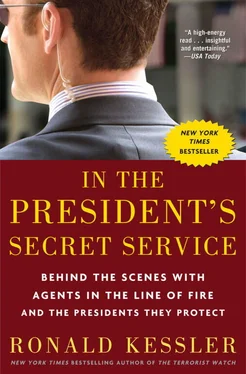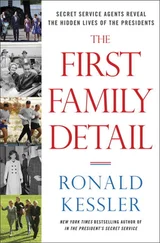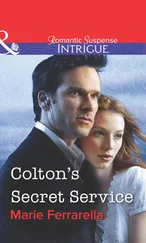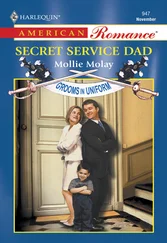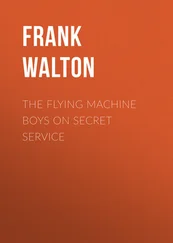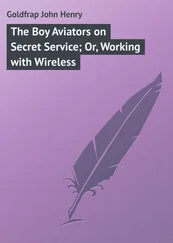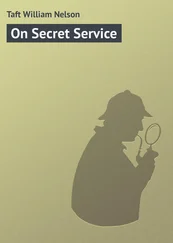Sullivan has a corner office on the eighth floor of Secret Service headquarters on H Street at Ninth Street in Washington. The objects in his office underscore his jock status: a framed photo of hockey great Bobby Orr on the ice, an aerial view of Fenway Park, a cluster of Red Sox caps and signed baseballs and signed footballs.
The traces of a Boston Irish accent fade quickly when Sullivan starts to talk about the job. There are twenty-two hundred working investigations, he says. As he speaks, his brow rises and furrows over his large wide-set brown eyes, and it stays furrowed in a persistent intensity. He leans forward in his chair, his meaty hands slapping his knees for emphasis. He throws himself into things physically. He sits with his legs crossed, his calves massive from all the years of skating.
Besides starting earlier than any other presidential campaign, candidates were taking more overseas trips, Sullivan notes. As a candidate, Obama took a six-day trip to Jordan, Israel, Germany, France, and Great Britain. Before that he went to Afghanistan and Iraq. McCain traveled to Canada, Colombia, and Mexico.
“The type of crowds we see in the earlier time frame of the campaign are larger than historically we’ve seen for that time frame,” Sullivan says. While the campaign was the longest in history, “I think that our people have reacted to it very, very well,” Sullivan says. “I’ve been very proud of the way they’ve reacted to it.”
In the summer of 2008, the Secret Service asked for and received an extra $9.5 million to cover unexpected costs of protecting the candidates, in addition to the $106.7 million already budgeted. In all, the Secret Service protected the candidates on 5,141 travel stops. More than 2.8 million people passed through thirty-five hundred Secret Service magnetometers.
That did not include screening 1.5 million people at events attended by the president and other protectees, or screening at the two national conventions, in Denver and in Saint Paul. The Secret Service oversaw security arrangements for the two conventions and set up an off-site communications center at each. The center coordinated the efforts of a hundred representatives from seventy entities ranging from the FBI and local police to local hospitals and utility companies. Manned twenty-four hours a day, each center had tiered seats as in a stadium so those in attendance could easily monitor the screens on the walls.
Every security concern, down to a car being broken into, appeared on a screen with the action being taken to resolve it. At the Republican convention, the Saint Paul Police Department and the Ramsey County sheriff’s office arrested eight hundred protesters. They included three hundred self-described anarchists, most of them affiliated with the RNC Welcoming Committee.
The Secret Service considered the local law enforcement efforts a model of how to handle such threats. Thirteen months earlier, Sheriff Bob Fletcher had organized an intelligence group that infiltrated the Welcoming Committee. A few days before the convention, sheriff’s deputies arrested eight of the group’s leaders and executed search warrants that obtained their plans, maps, and weapons. The group allegedly had planned to barricade bridges, spray delegates with urine, and possibly kidnap delegates. They were charged with conspiring to cause a riot as part of a terrorist act.
At the convention itself in the Xcel Energy Center, several Code-Pink protestors interrupted speeches by Senator McCain and Governor Palin with heckling. As they approached the stage, they revealed pink slips they were wearing. While delegates or the press may have given them guest passes, they also could have obtained them through others who received them from the original recipients. As long as the protesters did not threaten anyone, the Secret Service considered the matter one for the convention’s security force to handle.
“We screen everybody coming in,” an agent says. “If they had posed a threat, we would have addressed it. If they had rushed the stage, if they had tried to get to the protectees, if they had yelled some sort of threat, we would have been involved. But that wasn’t the case.”
Convention security personnel escorted the protesters out, and the Republican National Committee did not press charges.
“They were voicing their First Amendment right to what they had to say, and they were escorted out by the host committee there, so that really wasn’t a Secret Service issue,” Hughes says.
Agents say both Barack Obama—code-named Renegade—and Michelle Obama—code-named Renaissance—treat them with respect, as does Biden.
“Twice Obama invited agents to dinner, including a party for a relative, both at his home,” says an agent who was on his candidate detail. Michelle Obama insists that agents call her by her first name.
“Michelle is friendly—she touches you,” an agent says.
Obama makes an effort to be on time and usually is. If Obama is running late, Michelle gets on his case, saying he is being inconsiderate of his agents. Biden “gets a kick out of shmoozing with agents,” says an agent. “The Bidens buy agents food and are getting to know everyone by name.”
On April 4, 2008, just before Obama’s pastor, the Reverend Jeremiah A. Wright, Jr., spoke at the National Press Club, Obama secretly met with Wright at Wright’s home. So that they would not be noticed, agents made a point of driving Obama in a minivan instead of the usual Suburban. They parked their other vehicles a block away. Obama spent an hour with Wright and then left.
No doubt Obama wanted Wright to fade into the woodwork, but in his press club speech, Wright only confirmed that he thought America created the AIDS virus to kill off blacks. After that, Obama severed ties with him.
After Obama was elected president, Barbara Walters asked him if he worries about his safety. He said he never thinks about it.
“Part of it is because I’ve got this pretty terrific crew of Secret Service guys that follow me everywhere I go, but also because I have a deep religious faith and faith in people that carries me through the day,” he said.
Contrary to Obama’s repeated claims that he is quitting smoking, he has continued to smoke regularly, agents say. A week after being sworn in as president, Obama told CNN’s Anderson Cooper that he hadn’t had a cigarette on the White House grounds. That left open the possibility that he smokes on the Truman Balcony and in the White House residence and West Wing. Agents say he smokes outside the White House as well.
Unlike Obama, Secret Service agents say McCain—code-named Phoenix—was irritable, impatient, and displayed his famous temper over trivial annoyances.
“McCain’s really hard to work with,” an agent says. “He’s always complaining, just making comments. We knew from the start that he wasn’t a big fan of ours. We get in his way. We impede his ability to meet the people.”
On the other hand, Cindy McCain—code-named Parasol—was a pleasure to work with and has a good sense of humor, agents say.
After Obama was elected president, his two children—Malia, code-named Radiance, and Sasha, code-named Rosebud—began receiving Secret Service protection. The Secret Service also began protection of Joe Biden’s children, grandchildren, and mother. As with protection of Cheney’s daughters and granddaughters, rather than bringing in additional agents, the Secret Service expected agents to work longer hours to cover much of the extra load and to skip firearms training, physical fitness training, and tests. In fact, because of Biden’s constant travel as vice president—including to his home state of Delaware—the burden on agents became so great that the Secret Service stopped all training on the vice president’s detail. Nonetheless, agents on both his detail and the president’s fill in forms claiming that they have taken and passed all tests, when they have not, creating a dishonest culture.
Читать дальше
